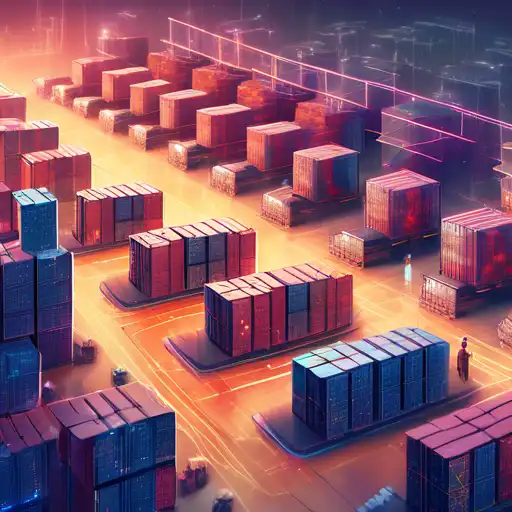The Transformative Power of Blockchain in Modern Supply Chains
In the digital age, blockchain technology is emerging as a revolutionary force in transforming supply chains across industries. By enabling transparency, security, and efficiency, blockchain is setting new standards for how goods are tracked and transactions are recorded. This article explores the myriad ways blockchain is reshaping supply chains, offering insights into its benefits and real-world applications.
Understanding Blockchain in Supply Chains
At its core, blockchain is a distributed ledger technology that allows data to be stored across a network of computers. This ensures that records are immutable and transparent, making it an ideal solution for supply chain management. With blockchain, every transaction or movement of goods can be recorded and verified, reducing the risk of fraud and errors.
Key Benefits of Blockchain for Supply Chains
- Enhanced Transparency: All parties in the supply chain can access the same information, reducing discrepancies and building trust.
- Improved Security: The decentralized nature of blockchain makes it nearly impossible to hack, ensuring the integrity of supply chain data.
- Increased Efficiency: By automating processes and eliminating intermediaries, blockchain can significantly reduce costs and delays.
- Better Traceability: From raw materials to final products, blockchain enables precise tracking of goods, enhancing quality control and compliance.
Real-World Applications
Several industries are already leveraging blockchain to optimize their supply chains. For example, in the food industry, blockchain is used to trace the origin of products, ensuring safety and authenticity. Similarly, in manufacturing, it facilitates the tracking of parts and materials, streamlining production processes. The pharmaceutical sector also benefits from blockchain by preventing counterfeit drugs from entering the supply chain.
Challenges and Considerations
Despite its potential, the adoption of blockchain in supply chains is not without challenges. Issues such as scalability, interoperability, and regulatory compliance need to be addressed. Moreover, the success of blockchain implementation depends on the collaboration of all stakeholders in the supply chain.
The Future of Blockchain in Supply Chains
As technology evolves, blockchain is expected to play an even more significant role in supply chain management. Innovations such as smart contracts and IoT integration are set to further enhance the efficiency and transparency of supply chains. With ongoing research and development, the possibilities are limitless.
In conclusion, blockchain technology is revolutionizing supply chains by offering unprecedented levels of transparency, security, and efficiency. While challenges remain, the benefits far outweigh the obstacles, making blockchain a key driver of digital transformation in supply chain management. For businesses looking to stay competitive, embracing blockchain is not just an option—it's a necessity.
